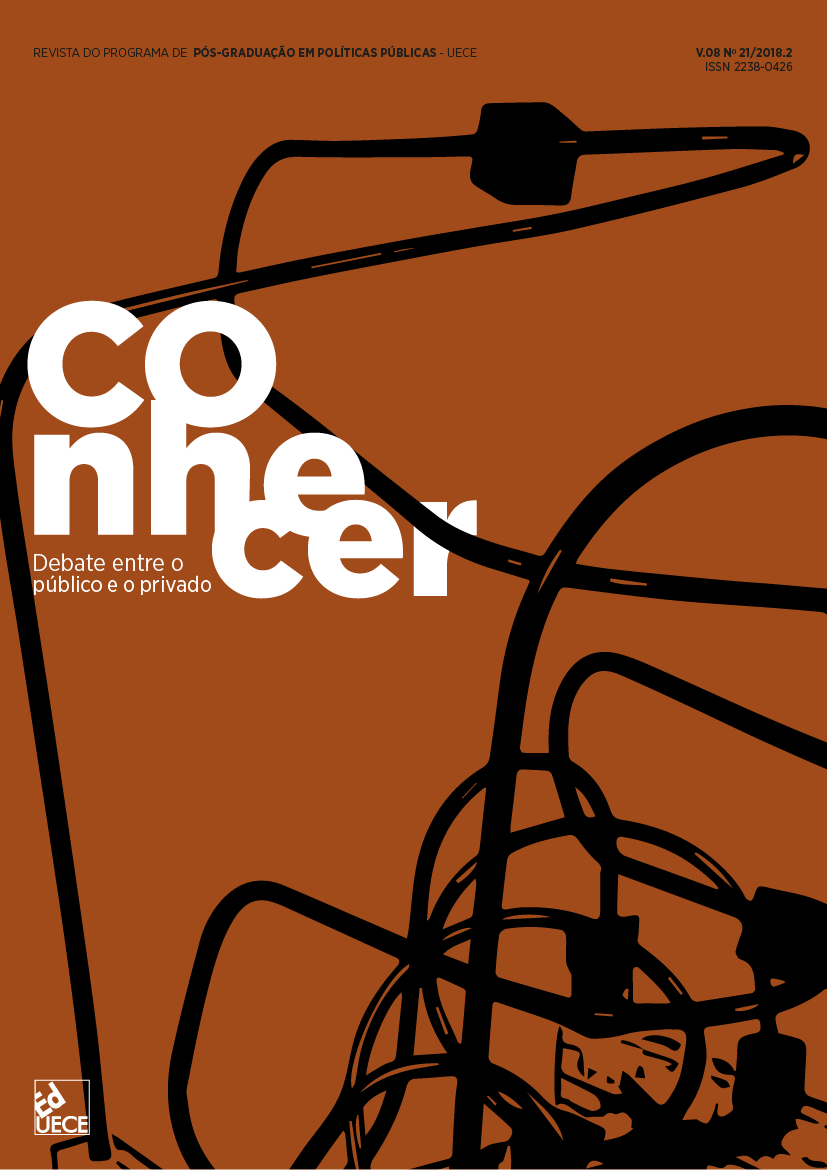Retreating mortified migrants in ‘Ceará-da-seca’:
population (bio)policies in the modern State consolidation
DOI:
https://doi.org/10.32335/2238-0426.2018.8.21.1058Keywords:
biopolitics, retreating migrants, mortified people, camp; droughtAbstract
Based on the notion of ‘Ceará-da-seca,’ this article describes the emergence and consolidation, since 1877, of a sovereign power over life deployed through population policies aimed to manage the social effects of drought in the region. Thus, there are biopolitical government practices that characterize the modern State institutionalization as tied to exception devices (tent buildings, lazarettos, concentration camps, and work fronts), designed to protect a (urban and industrial) way of life so that it is guaranteed in face of the cyclical invasion of retreating migrants from the ‘sertão,’ taking to the coast, during each severe drought event, the abrupt spectacle of the barbarism of hunger, misery, plague.
Downloads
Downloads
Published
How to Cite
Issue
Section
License
Authors who publish in this journal agree with the following terms:
- Authors retain the copyright and grant the journal the right of first publication, and the study is simultaneously licensed under the Creative Commons Attribution License, which allows sharing the study by acknowledging authorship and initial publication in this journal.



